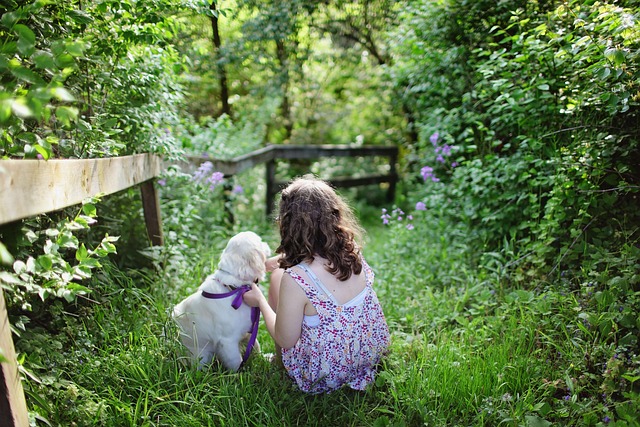New Bedford, MA, is embracing sustainable practices with a focus on eco-friendly fencing materials. This shift not only enhances local landscapes but also reduces environmental impact. Exploring options like natural woods, recycled plastics, and organic composites offers diverse benefits, from aesthetic appeal to biodiversity promotion. By engaging the community in these efforts, New Bedford leads the way in eco-conscious urban development, setting a trend for greener and more sustainable future fencing practices.
- Exploring Eco-Friendly Fencing Options in New Bedford
- Benefits of Sustainable Fencing for Local Landscapes
- Natural Materials: Enhancing Urban Green Spaces
- Reducing Environmental Impact: A Local Focus
- Community Engagement: Embracing Eco-Conscious Practices
- Future Trends: Green Fencing Innovations
Exploring Eco-Friendly Fencing Options in New Bedford
New Bedford, MA residents now have an exciting array of eco-friendly fencing options to choose from. This shift towards sustainable living doesn’t just stop at energy conservation; it extends to outdoor spaces as well. Traditional fencing materials like wood and metal often contribute to environmental harm due to their production and disposal. However, modern innovations offer aesthetically pleasing alternatives that are kind to the planet.
From recycled plastic and bamboo to organic composites, these materials not only reduce carbon footprints but also provide long-lasting durability and low maintenance. They blend seamlessly with natural landscapes, enhancing outdoor aesthetics without compromising environmental integrity. Exploring these eco-friendly options allows New Bedford residents to contribute positively to their community’s green initiatives while beautifying their homes.
Benefits of Sustainable Fencing for Local Landscapes
In New Bedford, MA, adopting eco-friendly fencing materials offers a multitude of benefits not just for homeowners but also for the local environment and community. One of the primary advantages is the reduction in carbon footprint associated with traditional fencing options. Sustainable materials, such as recycled plastic, wood from certified sustainable sources, or bamboo, often have lower production and transportation emissions, contributing to a greener landscape.
Moreover, these materials are designed to be durable and low-maintenance, reducing waste over time. They can withstand harsh weather conditions and do not require frequent replacement, saving money for property owners. Additionally, eco-friendly fencing enhances the overall aesthetics of New Bedford’s diverse landscapes, promoting a harmonious blend with natural surroundings. This approach encourages biodiversity by providing habitats for local wildlife while creating beautiful, lasting outdoor spaces.
Natural Materials: Enhancing Urban Green Spaces
In urban settings like New Bedford, MA, incorporating natural fencing materials offers a unique opportunity to enhance green spaces and create harmonious environments. These organic alternatives provide both aesthetic appeal and environmental benefits. Materials such as bamboo, wood from sustainably managed sources, and natural fibers not only reduce the carbon footprint associated with traditional fencing but also offer a more visually appealing and environmentally conscious solution.
Natural barriers allow for better integration of urban areas with local ecosystems, promoting biodiversity and providing habitats for local wildlife. Moreover, these materials are often more durable than synthetic options, weathering well over time while requiring minimal maintenance. By choosing natural fencing, New Bedford residents can contribute to a greener cityscape that supports both ecological balance and community well-being.
Reducing Environmental Impact: A Local Focus
In New Bedford, MA, the choice of fencing materials goes beyond aesthetic considerations; it plays a direct role in shaping the local environment. Opting for eco-friendly options allows residents to minimize their carbon footprint and contribute to a healthier ecosystem. Traditional fencing often relies on non-sustainable resources, such as treated wood containing harmful chemicals, or metal that contributes to mining and manufacturing processes with significant environmental costs.
By contrast, locally sourced, recyclable, or renewable materials like bamboo, recycled plastic, and organic wood offer viable alternatives. These options not only reduce the transportation footprint associated with typical fencing but also foster a local focus on conservation. New Bedford residents can actively participate in preserving their natural surroundings while enhancing the beauty of their properties, creating a harmonious relationship between human habitats and the rich biodiversity of the region.
Community Engagement: Embracing Eco-Conscious Practices
In New Bedford, MA, community engagement is playing a pivotal role in embracing eco-conscious practices when it comes to fencing. Local residents and businesses are actively participating in initiatives that promote sustainable solutions, such as recycling old fences or using environmentally friendly materials. This collective effort not only reduces the town’s carbon footprint but also fosters a sense of shared responsibility for the local ecosystem.
Through community workshops and educational programs, residents learn about the benefits of eco-friendly fencing, from minimizing pollution to preserving biodiversity. By adopting these practices, New Bedford is setting an example for other communities, demonstrating that small changes in everyday choices can lead to significant environmental improvements on a larger scale.
Future Trends: Green Fencing Innovations
The future of fencing looks increasingly green as innovative eco-friendly materials gain popularity. In New Bedford, MA and beyond, there’s a growing trend toward sustainable fencing options that minimize environmental impact while enhancing outdoor spaces. These advancements range from recycled plastic composites to organic plant-based fibers, offering both aesthetic appeal and practical benefits like reduced maintenance and longer lifespans compared to traditional wood or vinyl fences.
As consumer demand for eco-conscious products continues to rise, we can expect to see further developments in green fencing technologies. Emerging trends include the integration of solar panels into fence panels, providing energy efficiency while offering a unique design element. Additionally, smart fencing systems incorporating sensors and connectivity could offer enhanced security and monitoring capabilities. These future innovations promise to make eco-friendly fencing not just sustainable but also technologically advanced and adaptable to modern needs.
